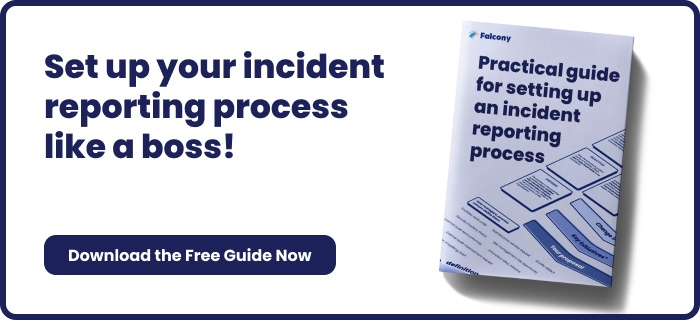Types of Loss Prevention Reports for Maritime
In the maritime industry, loss prevention is critical to maintaining safety, security, and operational efficiency.
Maritime losses, ranging from cargo damage to security breaches, can have significant financial and operational consequences. Loss prevention reports help companies identify, assess, and mitigate potential risks, ensuring smoother operations and reducing the chance of incidents. This blog will explore the key types of loss prevention reports used in the maritime industry.
Cargo Damage Reports
Cargo damage is a common concern in maritime operations, particularly when goods are transported over long distances. A Cargo Damage Report is essential for documenting the extent, cause, and circumstances of any damage that may occur during transport. These reports typically include details such as:
-
The type of cargo damaged
-
The nature of the damage (e.g., moisture, impact, or contamination)
-
The suspected cause (e.g., improper loading, adverse weather conditions, or handling errors)
-
Actions taken to prevent recurrence
Accurate Cargo Damage Reports allow businesses to identify patterns, implement corrective actions, and ensure proper insurance claims are filed.
Security Incident Reports
With rising concerns over piracy, theft, and other security threats in the maritime sector, Security Incident Reports are crucial for safeguarding assets and personnel. These reports focus on any breach of security, whether it involves external threats or internal malpractices. Key elements typically include:
-
A description of the incident
-
The impact on the vessel, crew, or cargo
-
A detailed timeline of events
-
The actions taken to address or prevent the incident
Security Incident Reports are vital for ensuring compliance with international maritime security standards, such as the ISPS Code, and for assessing the effectiveness of security measures in place.
Safety Incident Reports
Safety incidents, including accidents, injuries, or near-misses, can severely disrupt operations in the maritime industry. A Safety Incident Report documents any unsafe occurrences and is essential for improving safety protocols. These reports typically cover:
-
A clear description of the incident
-
The parties involved (crew, contractors, etc.)
-
The causes and contributing factors (e.g., human error, equipment failure, or environmental conditions)
-
Corrective actions taken
Safety Incident Reports help identify trends in accidents and near-misses, enabling organisations to implement targeted safety training and preventative measures.
Environmental Incident Reports
Environmental protection is of paramount importance in the maritime industry, and any incident involving the discharge of pollutants or hazardous materials into the ocean must be meticulously documented. Environmental Incident Reports address events such as oil spills, ballast water contamination, or the release of chemicals. Key details include:
-
The type of incident (e.g., spill, leak, or waste discharge)
-
The location and impact of the incident
-
The response measures taken (e.g., containment, clean-up)
-
Compliance with environmental regulations
Environmental Incident Reports help maintain regulatory compliance with organisations such as the IMO (International Maritime Organization) and local environmental authorities.
Insurance Claims Reports
When a maritime loss occurs, whether due to cargo damage, accidents, or other unforeseen events, an Insurance Claims Report is necessary to ensure proper compensation. These reports outline the details of the incident and provide the necessary documentation to support a claim. Elements commonly included in these reports are:
-
A description of the incident and its impact
-
Evidence supporting the claim (e.g., photographs, witness statements)
-
Estimated financial losses
-
Any previous claims or history of similar incidents
Insurance Claims Reports streamline the process of receiving compensation and help mitigate the financial impact of maritime losses.
Maintenance and Equipment Failure Reports
Regular maintenance and equipment reliability are crucial to preventing accidents and operational downtime. Maintenance and Equipment Failure Reports track failures in machinery, equipment, or systems onboard a vessel. These reports are vital for:
-
Identifying the root cause of the failure (e.g., wear and tear, faulty parts, or inadequate maintenance)
-
Outlining the response actions taken (e.g., repair, replacement)
-
Recommending preventive measures to avoid future issues
By analysing these reports, companies can identify patterns and implement better maintenance practices to ensure vessel safety and efficiency.
Conclusion
Loss prevention in maritime operations involves a multifaceted approach to identifying, assessing, and addressing risks. Each type of report—whether focused on cargo damage, security incidents, or safety concerns—serves a distinct purpose in improving operational safety and efficiency. By diligently compiling these reports, maritime companies can enhance their risk management strategies, ensuring both the safety of their crews and the protection of valuable assets.
Adopting a comprehensive approach to loss prevention not only helps avoid costly disruptions but also builds a stronger foundation for sustainable maritime operations.
Are you looking for a tool to monitor nonconformities or any other issues in your organisation? Falcony | Observe ticks all the boxes for issue management, is easy to customise, enables real dialogue and is a lot more.
We are building the world's first operational involvement platform. Our mission is to make the process of finding, sharing, fixing and learning from issues and observations as easy as thinking about them and as rewarding as being remembered for them.
By doing this, we are making work more meaningful for all parties involved.
More information at falcony.io.

Related posts
9 Typical Loss Prevention Risks in the Maritime Industry
Loss prevention is well-established practice in the maritime industry, where vessels,...
15 Types of Safety Incidents in Maritime
In the maritime industry, safety is paramount. Every year, various safety incidents occur, with the...
7 Common Loss Prevention Risks in Hotels
Hotels often face a myriad of challenges when it comes to protecting assets, ensuring guest...







